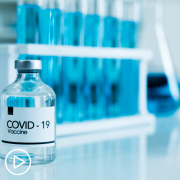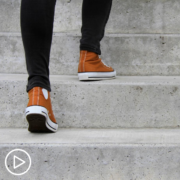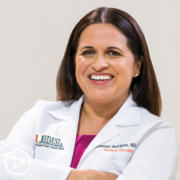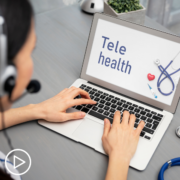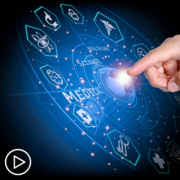Understanding Telemedicine Pros and Cons for Lung Cancer Patients
Understanding Telemedicine Pros and Cons for Lung Cancer Patients from Patient Empowerment Network on Vimeo.
What can lung cancer patients expect for telemedicine opportunities and challenges? Watch as lung cancer patient Jill shares some situations telemedicine has served well and some patients who have run into care disparities.
See More From Lung Cancer TelemEDucation
Related Programs:
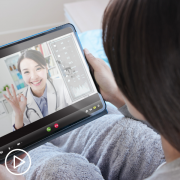
|
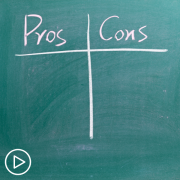
|
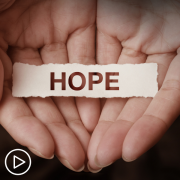
Lung Cancer Advocate Shares Importance of Staying Hopeful During Pandemic
|
Transcript:
Jill:
Telemedicine offers some opportunities as well as challenges, so I’ll speak to some of the challenges at first, which are…we don’t in-person, tend to build relationships as quickly. In general, I find when we’re just talking over the phone, when we’re in-person, we can get to know each other more comfortably, for the most part, everyone is unique, so you could be different, but for me, the relationship-building aspect is something that I’ve missed out on to some degree.
And the doctor may miss some visual cues, so for example, there might be something that he or she would pick up on, would notice some sort of symptom or side effect that we had perhaps not noticed, we’re not, thought important enough to raise. So those are challenges. How do we get past not being able to see each other, so also, what if the doctor is delivering some tough news that could be harder to do if we’re not in-person, if we’re not able to see those visual, non-verbal cues, that can help us understand how to help the doctor understand how the patient is processing, receiving the news. Another thing is that sometimes patients, and I’m not going to say that I do this, but I’ve heard quite a few patients say that they might try to hide some of their side effects because they’re concerned that they’ll get a reduced dose and they’re concerned that it won’t be as effective.
Now, from what I’ve heard, you know I understand that’s not a really wise choice to make, but everyone makes their own choices, and so if the patient is trying to hide the side effects from their doctor and their nurse, it might be more helpful for that patient to actually be present with their healthcare team, so the healthcare providers can actually notice and pick up on things.
The opportunities are really powerful though, because it frees up so much more time for the system and generally, we often, I’ve had an awful lot of appointments, I know my oncologist quite well because I’ve had the same one since 2013, and we don’t need to talk for a long time, so usually 10 minutes is good and it saves the travel time in. Also, it opens up possibilities for remote consults with potentially anyone anywhere in the world, which is so terrific as an opportunity for a second opinion perhaps, or for someone who doesn’t have a doctor in their community, it makes it so much easier for them to gain access to care that they need.
And we really need to focus on the disparities that occur, especially people in rural and remote regions can miss out on some of the best healthcare. And if this is a great opportunity for us to serve them better.

